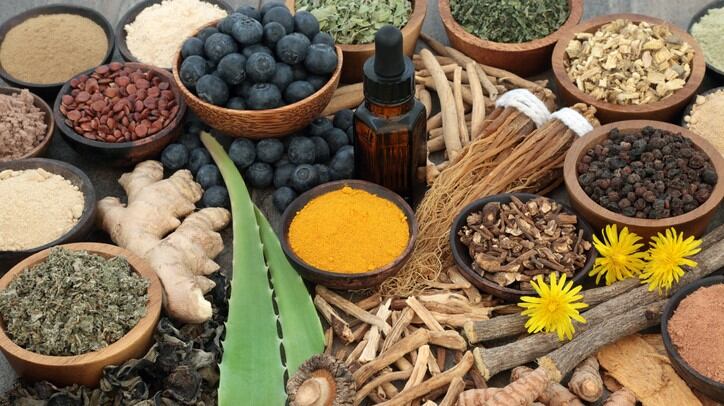Despite being fraught with potential hazards, skin care products with whitening claims continue to thrive in the Asian beauty market because fair skin is still considered the ideal of beauty.
According to a 2019 report by Grand View Research, the global market size of skin whitening in 2018 was $8.3bn. In the largest product segment – the cream category at 53% -- China, Japan, India, Indonesia and South Korea, emerged as the top five ranked countries in terms of sales.
The high demand for skin whitening solutions coupled with the increasing concern for product safety has led to a raft of research into traditional Asian herbs and potential skin whitening properties.
According to a group of researchers from the Central South University and Hunan Academy of Chinese Medicine, the basis of herbal skin whitening ingredients started more than two millennia ago.
While it may seem promising, they have highlighted the limitations of 90 most-cited Asian herbal studies on whitening from 2017 and 2020, calling into question the overall value of herbal research into skin whitening.
Limitations observed
Research on traditional herbs typically falls into three subcategories: herbal formulas, herbal extracts and active ingredients.
According to the study, research into herbal formulas were considered rare and most focused on herbal extracts and active ingredients extracted and purified from the herbs
Herbal extracts that have found to have skin whitening properties include ginseng, one of the most popular Asian herbs prized for its perceived ability to promote longevity.
However, after evaluation, the study questioned the reliability of experiment results, noting that growing conditions of the herbs can influence the components and different extraction methods were observed to yield different results.
“Herbal components are complex and easily affected by multiple factors, which brings problems to studying herbal formula and extract, and also affects the reliability of the results.”
Much research has also gone into studying famous herbs and their components, such as glabridin, which is extracted from licorice, and knowns as a tyrosinase inhibitor.
While the researchers agreed that screening active ingredients was an important part of herbal study and noted it had “great” application prospects, the research highlighted several issues with herbal ingredients.
Firstly, most natural ingredients are difficult to extract and purify on a large scale and extraction costs are a key factor limiting the conversion of ingredients into products.
Furthermore, they observed that many herbal ingredients only showed moderate effects and are unstable under normal conditions, with their performance dependant on the structure and properties.
As such, the molecular structure of some ingredients would need be further improved before use. However, research in this area is under development.
Valid research?
This study also evaluated the scientific validity of the 90 studies on Asian herbs and skin whitening and questioned their credibility.
From their evaluation, they found that nearly one-third of the studies could not guarantee the quality of herbal extracts.
While 82% of ingredient-related studies performed quality control, few of them stated the purity of the compounds.
Researchers also evaluated the research models in 90 studies to access their academic value.
Only 10 studies carried out in vivo experiments on models including human volunteers, zebrafish, mice, and guinea pigs. The remaining 80 studies conducted in vitro experiments.
The study concluded that Asian herbal research was “not deep and systematic enough”.
“Studies still focus on the discovery of new ingredients, rather than mechanism exploration and application. Also, there are few clinical studies on whitening. In order to promote the application and development of traditional Asian herbs in whitening, all issues should be addressed carefully. Such as, the focus of herbal research should shift from quantity to quality and promote achievements transformation.”


